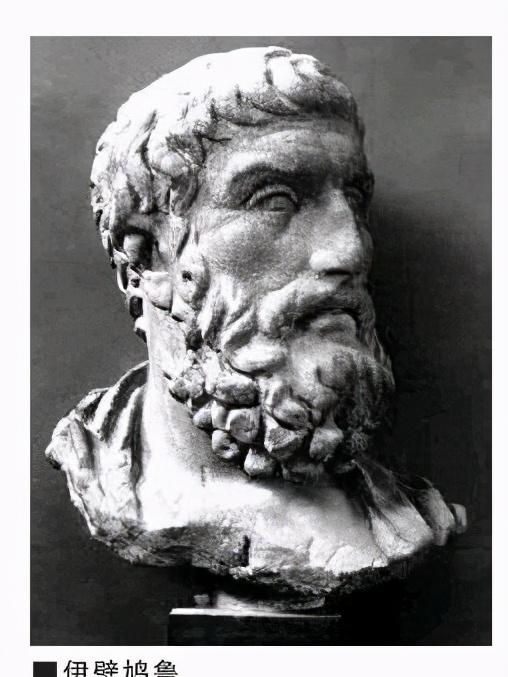
Epicurus said, "All happiness is inherently good in man, but not all are worth choosing, just as all suffering is bad, but not all should be avoided." The main thing is to compare and weigh each other to see if they bring convenience, so as to determine their trade-offs. Sometimes we think of good as bad, and sometimes we think of bad as good. (Epicurus and Lucretius: Nature and Pleasure: The Philosophy of Epicurus, China Social Science Press, 2004, p. 32-3; page numbers only)
What Epicurus is talking about here is to decide through rational choice what best achieves the ultimate goal of a happy life.
Since not all happiness is worth choosing, and happiness is the satisfaction of desires, which desires should be satisfied in Epicurus's view? He said: "Of all desires, some are natural and necessary; some are natural but not necessary; some are neither natural nor necessary, but arise from illusory opinions." "According to Diogenes. Larsho's interpretation shows that in the first case, the satisfaction of desire is to remove suffering, such as wanting to drink water when thirsty; in the second case, the satisfaction of desire is not to remove suffering, but only the pleasure of changing kinds, for example, the same "drinking" but changing into a lavish feast; the third case, such as the desire to satisfy "put on a crown and be erected as a statue". (p.41)
Some commentators say that Epicurus "considered that there are three kinds of desires: natural and necessary, such as appetite; natural and unnecessary, such as sexual desire; unnatural and unnecessary, such as the ambition to gain political power." (Xu Guodong: The Hedonism, Bentham Utilitarianism and the Formation of the Assumption of Legal Personality in the Epicurean School, Journal of Henan University of Economics and Law, No. 2, 2013) There are many commentators who hold similar views.
This classification is not in keeping with Epicurus's original intentions. As far as appetite is eating and drinking, "thirsty drinking" is appetite, and "extravagant feasting" is also appetite, Epicurus believed that the former was natural and necessary, and the latter was natural and unnecessary.
As far as sexual desire is concerned, it cannot be generally said that Epicurus considered it natural and unnecessary. Epicurus did say, "Sex is not good for man; if it is not harmed by it, it is already thankful." (p.52) This is the thesis of which the commentator concludes that Epicurus regarded sexual desire as natural and unnecessary.
Epicurus has a similar passage, but in more detail, let's look at it: "Epicurus said to a young man: I know from your letter that your nature makes you excessively addicted to sex. Put it this way, as long as you don't break the law or social conventions or interfere with your neighbors or ruin your body or spend all your money, you can follow your nature and do what you want to do. But it's almost impossible not to be bothered by at least one of these problems. Sex has never been good for anyone; if it doesn't hurt a person, it's a fluke! ”(p.48)
The last sentence is similar to the one quoted above, and this sentence has a premise, that is, some of the words that precede it, from which it is derived. The premise is that Epicurus is talking about a young man with an "overly addictive sex" nature; even then, he advises the other person to follow his nature and do what he wants.
That is to say, Epicurus's attitude was that sex was not only natural, but necessary in cases where it was not excessive; if it was excessive, it could hurt itself. This is the same as the satisfaction of appetite: eating and drinking is not only natural but necessary in the case of not excessive; if it is excessive, it is too much, to the point of extravagance and waste, it may cause damage to the stomach, spend money and other harmful consequences, that is, although natural but not necessary.
Thus he said, "No happiness is inherently bad, but certain pleasures bring many times greater troubles than happiness." ”(p.39)
Epicurus believed that the satisfaction of natural and necessary desires was limited to "the elimination of all the sufferings of the body due to deprivation," after which "the pleasures of the body never again grow, but can only change in variety." (p.40) And this is relatively easy to do.
Thus, he argues that extravagant wealth is meaningless to people, "just as water is meaningless to a cup that has been filled with water." ”(p.54)
Some commentators have said: "The Epicurean school believes that to be happy is to pursue happiness as much as possible, because life is only once after all, and the pursuit of happiness itself is not an immoral thing." (Ding Zhiqiong: "Happiness is Happiness" and "Virtue is Happiness": A Comparison of the Concept of Happiness between the Epicurean School and the Stoic School, Journal of Anhui University (Zheshe Edition), No. 3, 2009)
Judging from our earlier analysis of Epicurus's thought, it is inaccurate to summarize his doctrine of happiness in this way. Epicurus believed that the ultimate goal that one should pursue is the freedom of physical pain and the absence of trouble in the soul, and that the pursuit of pleasure should be subordinated to this purpose, and that no happiness is worth pursuing.
(Author Huang Zhongjing)